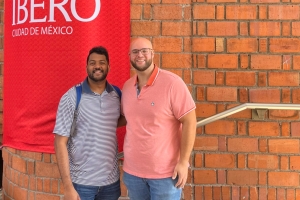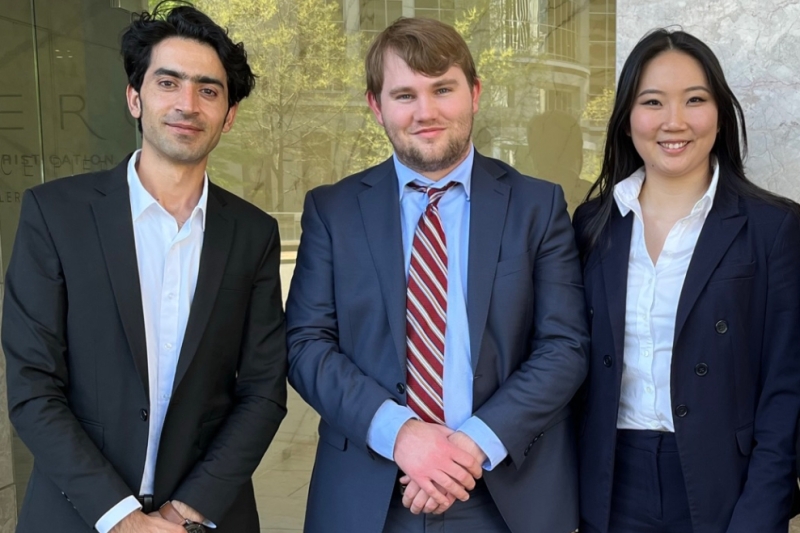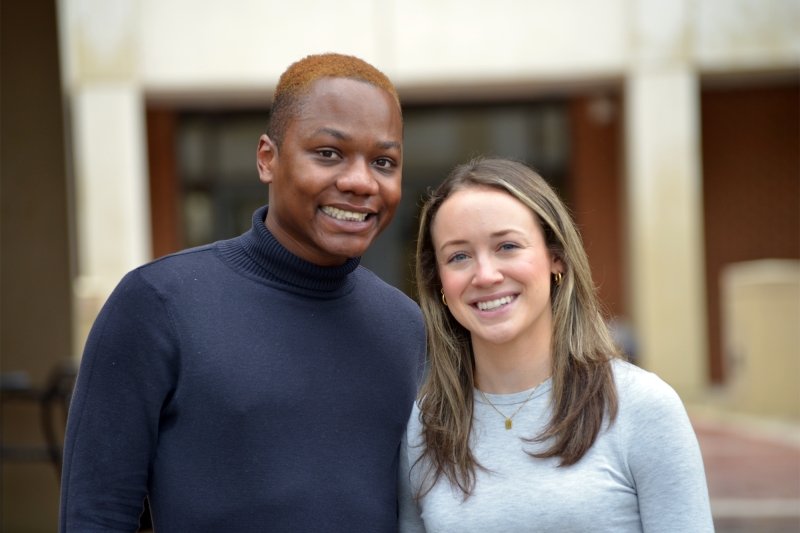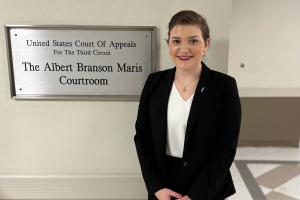
Clinic Students Win Asylum for Afghanistan Human Rights Advocate The case spanned nearly two years and involved two sets of clinic students who worked to secure the outcome.
Law students in W&L Law’s Immigrant Rights Clinic have won asylum in the U.S. for a client from Afghanistan. The case spanned nearly two years and involved two sets of clinic students who worked to secure the outcome.
The client, named Mohammad, was working as an advocate for women’s rights in Afghanistan when the Taliban took control of the country in 2021. Fearing he would be a target for his human rights work, Mohammad fled to the airport in Kabul and was one of the lucky few who were able to escape on a military flight to the U.S.
After spending some time in poor conditions at a refugee camp in Texas, Mohammad was able to make his way Richmond to stay with a friend and begin his quest for legal status. Clinic director Matthew Boaz explained that Mohammad had a year from entering the U.S. to file for asylum.
“Given what was happening at the time in Afghanistan, there was tremendous need for representation,” said Boaz. “I am happy we were in a position to help.”
Winni Zhang ‘24L joined the Immigrant Rights Clinic because she experienced first-hand the challenges of starting over somewhere new as the daughter of Chinese immigrants. She was part of the first team of students, along with Jack Keltner ‘23L, to work on the case. They conducted the initial interview with Mohammad, gathered evidence to support his application and prepared all of the necessary documents, including a written brief in support of his application. The students filed the application in the fall of 2022 and prepared Mohammad for the asylum interview, which took place in April 2023.
“Over a year, we got to know Mohammad and understand his story well – his dreams, aspirations, upbringing, and so much more,” said Zhang. “Using the legal knowledge that we gathered to build out his case was incredibly fulfilling.”
By law, the U.S. Citizenship and Immigration Services (USCIS) is required to render asylum decisions for Afghans within 150 days of the interview. However, Boaz said that data on similar cases showed that USCIS was not processing claims fast enough, requiring the Clinic to take additional steps to secure a decision in Mohammad’s asylum case.
Enter students Chandler Marshall ‘24L and Jared Hunter ‘24L, who took on the case in the fall of 2023. In order to move Mohammad’s case forward, they decided to file a writ of mandamus in federal court to compel USCIS to render an asylum decision. Six weeks of research and drafting followed before the students were ready to submit their argument.
“It was a challenge to advocate strongly for our client while keeping our emotions in check in order to produce an objective piece of writing for the court,” said Marshall. “In addition to presenting all the facts from Mohammad’s case, we also wanted to make clear the U.S. government had certain amount of responsibility here for the situation in Afghanistan.”
While the students prepared the writ, they also communicated their intentions to USCIS several times, hoping that a potential federal case would compel the agency to act. But after receiving no reply, Marshall and Hunter filed their writ in the Eastern District of Virginia just after Thanksgiving, with the help of Prof. Jon Shapiro, who is admitted in that court. The filing was accepted more than 275 days after Mohammad’s initial application was submitted.
By comparison, the response to the writ of mandamus was at light speed. Two weeks after filing, Marshall and Hunter received an email from the U.S. Attorney’s Office. Mohammad’s asylum application had been granted, and the government was requesting the parties file a joint dismissal of the complaint.
“To be able to call Mohammad with this amazing news, that he had a clear path forward, was just an amazing feeling,” said Marshall.
Mohammad’s plans include going to school with hopes for joining the health profession as a nurse or physician assistant. With his asylum application granted, he can apply for permanent residency in a year. Four years later he will be able to apply to become a U.S. citizen.
After graduation, Marshall and Hunter are both headed into transactional practices in Washington, D.C. and New York, respectively. But it is hard to overstate the value they place on their experience in the Immigrant Rights Clinic.
“I signed up for the Clinic knowing that I might never get this kind of experience again, especially any litigation experience,” said Marshall. “And I know both Jared and I feel like this is probably the best decision we could have made in law school.”
Boaz, who has directed the Clinic since 2019, feels like Mohammad’s case was an ideal example of how a clinic should function, where legal matters often span years.
“One group of students starts the case and moves it forward, and then another group picks it up and does something substantial with it as well,” said Boaz. “And it’s really exciting for them and meaningful because the client is no longer insecure. They have status and a pathway to citizenship.”
 Jack Keltner ’23L, center, and Winni Zhang ’24L, right, with their client.
Jack Keltner ’23L, center, and Winni Zhang ’24L, right, with their client. Jared Hunter ’24L and Chandler Marshall ’24L
Jared Hunter ’24L and Chandler Marshall ’24L

You must be logged in to post a comment.